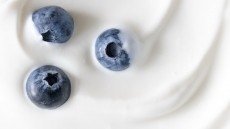Does milk make you a brain box? Research links dairy to stronger mental performance...
Between 2001 and 2006, Crichton et al. put 972 men and women aged 23-98 (recruited from the Maine-Syracuse Longitudinal Study of cardiovascular disease and cognitive functioning in adults) through eight brain tests: including visual-spatial, working memory and verbal memory tests.
Concurrently, the researchers measured subjects’ dairy consumption, and found that – irrespective of age – adults with higher intakes of milk and milk products scored significantly higher on memory and other brain function tests than those who consumed little or none.
For the mental performance tests, the highest scores for all eight outcomes were observed for those subjects (37%) with the highest intake of milk and milk products (more than one daily serving) compared to those with low and infrequent milk intake, the researchers found.
Study results controlled
No significant associations were found between cognitive outcomes and increasing intake categories for specific dairy foods (milk, cheese, yogurt and dairy desserts, cream and ice cream).
Study results were also controlled for other factors that could potentially affect brain health, including CVD prevalence, hypertension and waist circumference.
“The strengths of these relationships were modestly attenuated with the addition of these covariates, suggesting that they play a role but do not fully explain associations between dairy food intake and better cognitive functioning,” Critchton et al. wrote.
Although they concluded that milk nutrients may have a direct effect on brain function, and that “easily implemented lifestyle changes” (i.e. higher milk or milk product consumption) may have potential to slow or even prevent neuropsychological dysfunction, the researchers said that more research in the area was needed.
They wrote: “In this study, frequent dairy food intake was associated with better cognitive performance. [But] measurement of dairy food consumption needs to be specific in terms of type, fat content and quantity of intake.”
Data shortcomings
The authors also noted several limitations of the current study, and said they were unable to obtain an accurate indication of the quantity of food consumed on each occasion.
Participants were asked, ‘how often do you eat the following foods?’ but not questioned as to portion or serving size.
“This undoubtedly limits the accuracy of the estimated intakes of all foods and beverages as quantities are likely to differ substantially amongst individuals as well as the same individual on different occasions,” Crichton et al. wrote.
Responses indicating how often a food was consumed were also limited in the high-intake range, the authors said, and they were, therefore, unable to determine the specific number of times subjects consumed dairy foods beyond ‘once or more’ a day.
Moreover, with the exception of milk, study participants did not report the fat content of dairy foods consumed, the authors wrote.
“We were therefore unable to assess whether fat content was a relevant factor in the associations found, or compare our findings to others who have shown such relationships,” they added.
Self-reporting of nutritional intake might also have led to under- or overestimation of associations, and may not reflect long-term consumption patterns, the authors wrote.
Title: ‘Relation between dairy food intake and cognitive function: The Maine-Syracuse Longitudinal Study’
Authors: G.E Crichton, M.F Elias, G.A Dore, M.A Robbins
Source: International Dairy Journal, Volume 22, Issue 1 (January 2012). Published online ahead of print, dx.doi.org/10.1016/j.idairyj.2011.08.001















